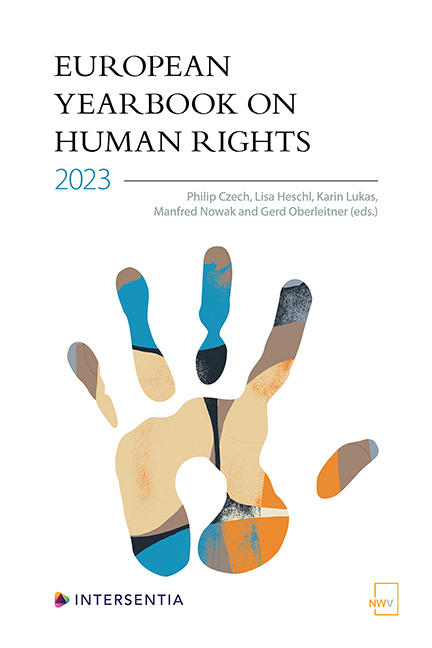Shouldering the Burden of Intergenerational Justice: Children and Youth Representing Future Generations in Climate Change Politics, Law and Litigation
Published online by Cambridge University Press: 04 April 2024
Summary
ABSTRACT
Although, in the climate change context, the view that the interests and rights of children and future generations overlap, the two groups have distinct characteristics. Most importantly, the concept of future generations lacks a clear legal definition, as opposed to the position of children, whose rights are protected by human rights instruments. The future generations are ‘voiceless’, whereas children have a right to express views, and to participate in decisionmaking or judicial procedures – although this right is oft en limited. In addition, children and youth involved in climate activism are typically sensitive to social justice issues, and engage in advocacy for the rights of the ‘voiceless’ future generations. However, this is not necessarily a voluntary mission, as it is oft en strongly influenced by distributed external factors: the much emphasised (trans) generational proximity between children and those to be born (‘children's children’); political pressure and ignorance; or, as increasingly seen, a litigation strategy designed to argue on behalf of those most vulnerable to climate change.
Th is contribution fleshes out common and distinct features of future generations and children in the political discourse, in relevant international law, and in recent examples of climate change litigation. A critical approach serves to underline the mutual benefit of linking these groups by enhancing intergenerational justice and children's agency, while also pinpointing a number of risks and ethical concerns in relation to instrumentalising young people for the purpose of representing future generations. Foremost, linking children with future generations, even if just symbolically, holds the risk of shift ing the dutybearers’ responsibility for climate action, including protection of the rights of future generations, on to the presently living youngest ones – those with the least power to fulfil this role. Shouldering such a weight may not only motivate children to build resilience and agency, but could also overwhelm them with feelings of guilt, helplessness and anxiety. This contribution showcases both mistreatments of this imbalance, and solutions that law-makers, practitioners and courts could apply when considering human rights of children and future generations.
In all that we do, we inherently represent not only ourselves, but past and future generations.
- Type
- Chapter
- Information
- European Yearbook on Human Rights 2023 , pp. 29 - 52Publisher: IntersentiaPrint publication year: 2023



